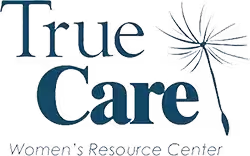March is Poison Prevention Awareness Month. One of the most common forms of accidental poisoning comes in the form of household cleaners, and that usually happens to young children. However, situations such as mis-labeled medication and not reading dosage instructions also occur, and those can, and do, happen to adults.
How Bad Is It?
According to the Center for Disease Control (CDC), 300 children, from infant to teenager, are treated in emergency rooms for poisoning; two of them die as a result of being poisoned. From chemicals to medications, there are a variety of products in homes, garages, and sheds that can be harmful, even lethal, for young ones.
Also according to the CDC, overdose of prescription medications is on the rise. In 2014, 28,000 people died, more than any year on record. Six out of ten of these deaths were from opioids, which includes prescription pain relievers and heroin. In America, 78 people die daily from opioid overdose.
An article on the website Partnership for Drug-free Kids states that “the rate of death from accidental drug overdoses among people ages 45 to 64 rose 11-fold between 1990 and 2010.” It also says that more than 12,000 older Americans died of accidental drug overdoses, “more than the number who died in car accidents or from influenza and pneumonia” during 2013.
No matter a person’s age, drug overdose and other product poisonings do happen, at major cost for treatment and in lives.
How to Prevent Poisoning
Here are some tips for preventing accidental poisoning:
Lock them up. Keep medicines and toxic household products, such cleaners, in original packaging and out of the sight and reach of children.
Know the number. Put the phone number for the nationwide poison control center on or near every telephone in your home and program it into your cell phone. The number 1-800-222-1222. Call that number if you think a child has been poisoned but they are awake and alert; someone can be reached 24 hours a day, seven days a week at that phone number. Call 911 if you have a poison emergency and the child has collapsed or is not breathing.
Read the label. Follow label directions and read all warnings when giving medicines to children or to yourself.
Don’t keep it if you don’t need it. Safely dispose of unused, unneeded, or expired prescription medications and over-the-counter drugs, vitamins, and supplements. Contact your local public health office, or your medical provider’s office, on how to do that in your community. You can also turn some types of medications in at a local take-back or drug disposal program. For Natrona County, Casper and other Wyoming locations and information on what can be accepted and what needs to be disposed of, visit this Wyoming Department of Health website.
If you or someone you know takes opioid prescription medication, make sure it’s locked up in a safe place and make sure you take the drug as prescribed by your health care provider. If you or someone close to you has become addicted to these pain relievers, or any other drugs, seek help. There are many places in Casper and throughout Wyoming to receive the counseling and care needed when someone is addicted to drugs.
Don’t allow your child, yourself, or someone close to you become a poison statistic (because of either medications or household products)!
